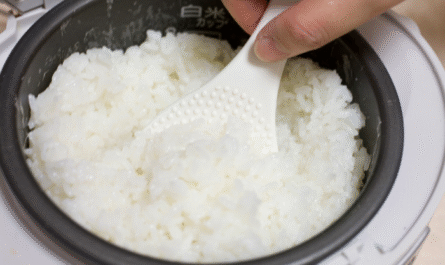For many sushi lovers, a rice cooker is an indispensable kitchen appliance. It’s the unsung hero that helps create perfectly cooked rice, which is a staple in countless dishes. However, there may come a time when your reliable rice cooker decides not to turn on. If you’re facing this dilemma, don’t worry. This guide will provide you with comprehensive troubleshooting tips to get your rice cooker back in action.

Understanding the Problem
When your rice cooker not turning on, it can be a frustrating experience. Before you panic, it’s essential to understand the potential reasons behind this issue. The problem could be as simple as a disconnected power source or as complex as a faulty internal component.
Check the Power Source
The first step in troubleshooting your rice cooker is to ensure that it’s properly connected to a power outlet. Check for any loose connections or damaged power cords. Try plugging the rice cooker into a different outlet to rule out the possibility of a faulty power source.
Inspect the Power Cord
A damaged power cord can prevent your rice cooker from turning on. Look for any visible signs of damage, such as frayed wires or bent prongs. If you notice any issues, replace the power cord with a compatible one.
Examine the Inner Pot
The inner pot of your rice cooker must be correctly positioned for the appliance to function. Ensure that the pot is seated properly and that there are no obstructions preventing it from making contact with the heating element.
Check the Lid
Some rice cookers have safety mechanisms that prevent them from operating if the lid is not securely closed. Make sure the lid is properly latched, as an improper seal can prevent the cooker from turning on.
Inspect the Control Panel
If your rice cooker has a digital control panel, check for any blinking lights or error messages. Refer to your user manual for guidance on troubleshooting specific error codes.
Investigate Internal Components
If the above steps do not resolve the issue, the problem might lie within the rice cooker’s internal components. In this case, it may be necessary to consult a professional technician for further diagnosis and repair.
Check the Heating Element
The heating element is a crucial part of the rice cooker. If it is damaged or malfunctioning, it can prevent the appliance from turning on. A professional can test the heating element and replace it if necessary.
Evaluate the Thermostat
The thermostat regulates the temperature inside the rice cooker. If it’s faulty, it may prevent the appliance from operating correctly. A technician can assess the thermostat and perform any necessary repairs or replacements.
Regular Maintenance Tips
To prevent future issues with your rice cooker, regular maintenance is key. Here are some tips to keep your appliance in top condition:
Clean the Rice Cooker Regularly
After each use, clean the inner pot, lid, and any removable parts. This helps prevent the buildup of residue and ensures optimal performance.
Store Properly
When not in use, store your rice cooker in a cool, dry place. Avoid placing heavy objects on top of it to prevent damage.
When to Replace Your Rice Cooker
If your rice cooker frequently encounters problems, it may be time to consider a replacement. For guidance on when to replace your rice cooker, visit this helpful guide.

FAQs
Why is my rice cooker not turning on?
There could be several reasons why your rice cooker is not turning on, including a disconnected power source, a damaged power cord, or a malfunctioning internal component.
Can I fix my rice cooker myself?
Simple issues like a loose power cord or improperly seated inner pot can often be fixed at home. However, for more complex problems, it’s best to consult a professional technician.
Is it safe to use a rice cooker with a damaged power cord?
No, using a rice cooker with a damaged power cord is unsafe and can pose a risk of electrical shock or fire. Always replace damaged cords before using the appliance.
For more information on selecting the right rice cooker, check out this guide from Epicurious.
This article contains affiliate links. We may earn a commission at no extra cost to you.




